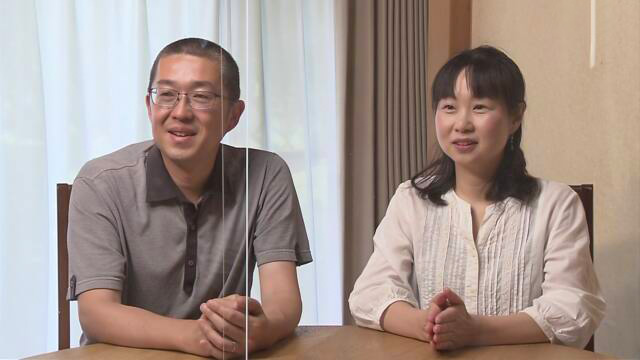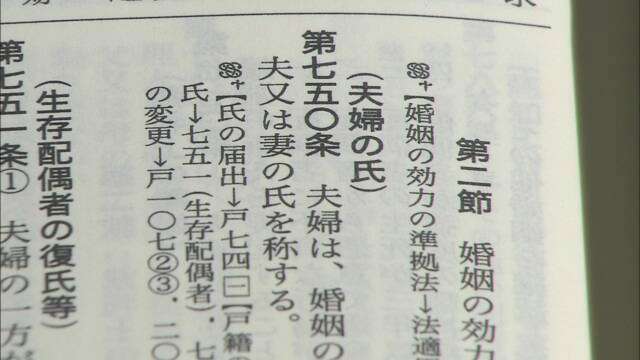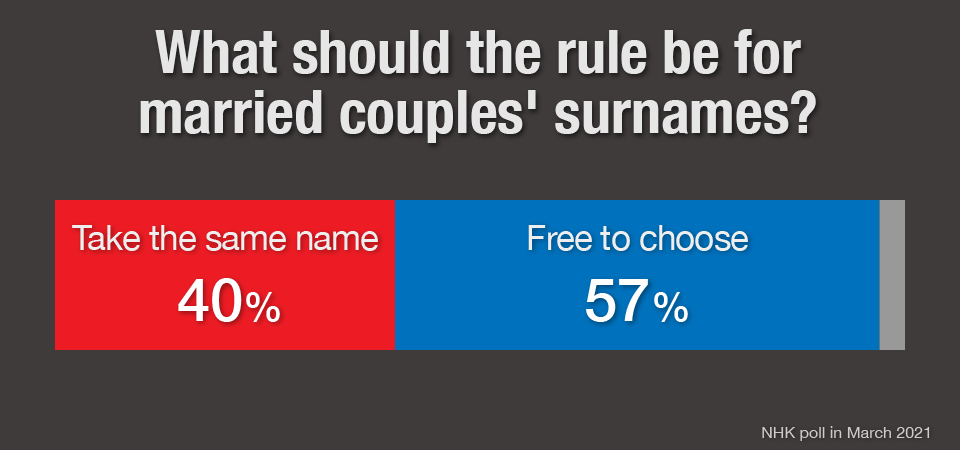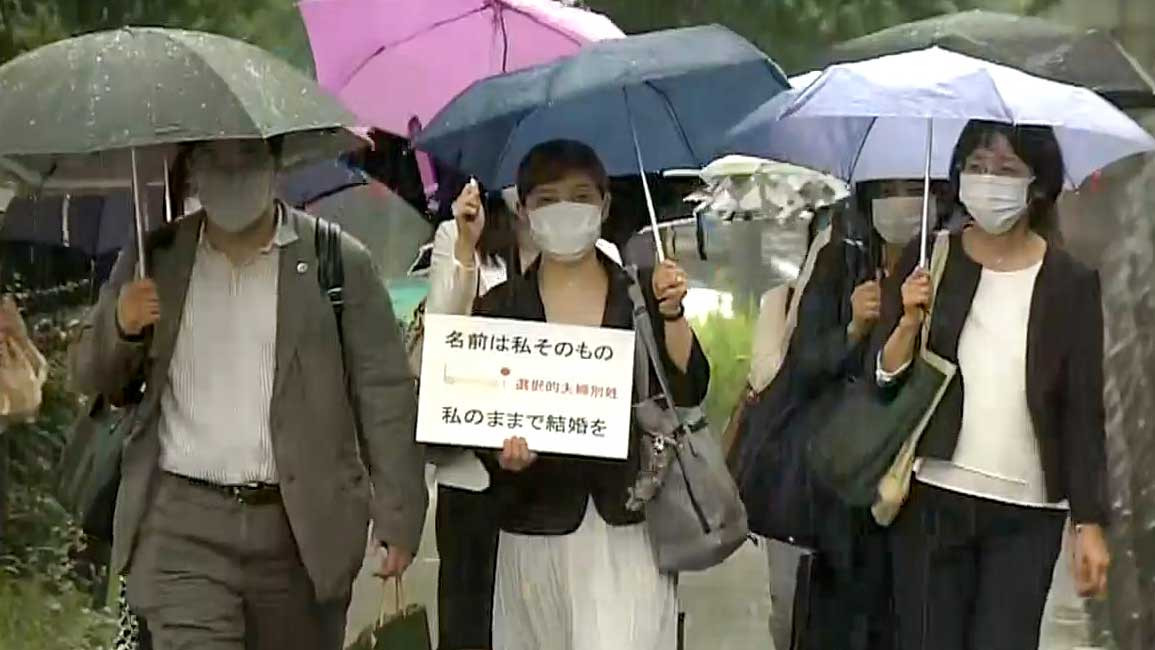"It's very disappointing," said one of the plaintiffs who asked to remain anonymous. "Some people may think marriage means sharing a surname. But I want a society that also acknowledges different values."
Interpreting freedom
The cases were filed in 2018 by three common-law couples living in Tokyo. The couples each tried to register their marriages under different surnames, but the local governments rejected them. So they took their case first to the Family Court, then the High Court and finally, in 2020, to the Supreme Court.
The couples claim that requirements for a common surname in the Civil Code and the Family Register Act run counter to Article 14 of the Constitution, which guarantees equality before the law, and Article 24, which states that marriage should be based on "equal rights of husband and wife" and says laws must be enacted from the standpoint of individual dignity.

"The Diet should make decisions"
On Wednesday, the Supreme Court's Grand Bench presiding justice Otani Naoto said the Court recognized that public views have shifted since a similar challenge in 2015 but did not change its view on the legality of the provision.
Six years ago, the top court said the practice of using the same surname was well-established in society and it is reasonable to set one surname as the name of the family, which is a basis of society.
Wednesday's judgment said legal arguments should be separated from political discussions, and it was the role of the Diet to make changes to the surname system.
Eleven of the 15 justices sided with the majority view. Three of them wrote supplementary opinions saying the judgment does not prevent the Diet from considering legal changes to allow couples to use separate surnames, and expressed hope for sincere discussions based on public opinion.
The four dissenting justices issued supplementary opinions arguing that the ban on separate surnames is indeed unconstitutional. Justice Miura Mamoru wrote that families have become more diverse and women now face disadvantages from common surnames.
Justice Kusano Koichi wrote that the benefits of a dual surname option, in terms of people's well-being, far outweigh what would be lost. He also argued that not implementing the system undermines the dignity of individuals.
International marriages exempt
Article 750 of Japan's Civil Code states that a husband and wife must have the same family name upon marriage. That means one spouse is legally required to change theirs — almost always the woman. Different surnames are allowed only for international marriages. The law stems from a tradition established during the Meiji Era (1868-1912).
The Ministry of Health, Labour & Welfare says 600,000 couples married in 2015, and only 4 percent of the men took their wife's surname.

Waseda University professor Tanamura Masayuki, an expert in family law, says the ruling was nothing more than an out-of-touch Supreme Court passing the buck to the Diet. "I hope lawmakers will move the discussions forward because society is shifting dramatically," he says.
Recent opinion polls suggest public opinion is now firmly in favor of allowing separate surnames. A telephone survey conducted by NHK in late March found 57 percent of 1,508 respondents open to the idea, with 40 percent supporting the status quo.

There is, in fact, political momentum for change at both local and national level.
Chinjo Action, an organization campaigning for the option of dual surnames, says 171 local assemblies across the country have adopted written opinions calling for the introduction of the system and discussions in the Diet.
Conservative resistance
The ruling Liberal Democratic Party has recently started official discussions on the issue, although there has been strong resistance from the conservative wing of the party.
The plaintiffs, meanwhile, are disappointed but not deterred. "It's our generation's duty to make options available for the generations to come," said one. "It's an issue all Japanese people should think about."

